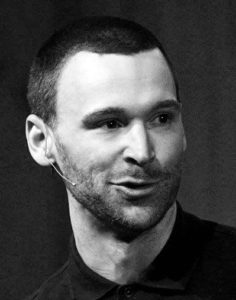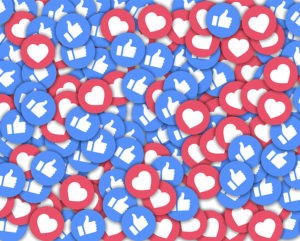 “It’s like I’m expected to have this internal PR department quickly craft ‘a statement’ every time something like this happens. I can’t tell you how long I spent staring at a blank box at the top of the news feed trying to write something about systemic racism that didn’t sound like the 10 other posts I just read.” That is how a clergyperson recently described his online life to me.
“It’s like I’m expected to have this internal PR department quickly craft ‘a statement’ every time something like this happens. I can’t tell you how long I spent staring at a blank box at the top of the news feed trying to write something about systemic racism that didn’t sound like the 10 other posts I just read.” That is how a clergyperson recently described his online life to me.
Whether its an updated profile picture border we adorn in solidarity to a preferred cause, a post written as a way of shedding light on a recent nonprofit donation or a retweet we hope will once and for all dismantle the police state, humans on the Internet aren’t so much talking as they are branding to one another, constantly.
Marshall McLuhan famously remarked that “the medium is the message,” and if there is anything the humans pretending to be brands and the brands pretending to be humans are saying to one another on the Internet — about both complex and inane topics — it is that “everything is terrible and you’re probably an idiot, but click through to my website (link in bio).”

The ubiquity of social media’s hold over our imaginations is never more clear than when we are railing against its influence over our elections, the selling of our personal data to the highest bidders or the bastardization of our interior lives on its very feeds.
How this plays out more subtly is in the recent (and needed) encouragement many of us white folks have gotten to begin cultivating a “more diverse community,” but on Instagram, or that we should be “reading and learning something” from marginalized voices, but on Facebook. From the Arab Spring 10 years ago to the ways a global protest movement has bubbled up in response to the ubiquity of police brutality in black and brown communities today, social media is often the medium for and the connective tissue of our protests.
The sweeping speed and organization of the reaction we have seen in response to the footage of George Floyd being lynched in Minneapolis can almost make us forget that, as of this writing, Mark Zuckerberg made $88 billion by creating a service we all use for free to post cat videos, share racist memes and dismantle white supremacy simultaneously. Or that President Trump’s resident tech-guru, Brad Parscale, bragged to a Lisbon tech-conference after the 2016 election that Facebook got Trump elected because the company was willing to embed employees in the Trump campaign offices and educate staffers on how best to use its platform to better engage with a wider audience. The Clinton campaign famously refused the offer, and subsequently, the White House.
In his book Capitalist Realism: Is there No Alternative?, philosopher Mark Fisher summed up the inescapable ubiquity of capitalism with the question: “What if you held a protest and everyone came?” Because, for Fisher, capitalism has found a way to colonize and monetize even our very dissent from it. He writes: “So long as we believe (in our hearts) that capitalism is bad, we are free to continue to participate in capitalist exchange … . We believe that money is only a meaningless token of no intrinsic worth, yet we act as if it has a holy value.”
Replace the word “everyone” above with “Roger Goodell” and I think the point becomes sharper. Exchange the word “capitalism” above with the word “social media” and I believe we’ve found the bleeding edge.
“Watching the mobilization of compassionate and inspired humans … demand a fundamental change to the ways in which Black lives have failed to matter for centuries is a privilege of being alive right now.”
I wouldn’t dare tell you what to do, but I would simply request that you avoid immediately dismissing this piece as yet one more tone-deaf referendum written by some white guy from the South on the legitimacy of digitized protest or the physical mass movements of people inspired to overthrow the forces of systemic racism. Watching the mobilization of compassionate and inspired humans from Salt Lake City to Slovenia demand a fundamental change to the ways in which Black lives have failed to matter for centuries is a privilege of being alive right now.
So, rather than serving as some sort of plea for the prevailing of “cooler heads” or a slowing pace of change, this is instead a quiet request for all of us to keep going in our collective demands for a different kind of world. I want to get to the bottom. Like a Baldwin-esque fire, I want this apocalypse to burn away or reveal the truth of what runs the world. Because the forces of “law and order” don’t just protect the perpetuance of an often amorphous and publicly disavowed “racism,” but at a far more insidious level, they undergird the interests of an insatiable greed that predates our efforts at Instagramming the revolution.
This greed enslaved black and brown bodies for centuries as a way of propping up the economy of a fledgling nation and violently pilfered the lands of our country’s indigenous peoples to form its republic. This greed has dismantled nation-states across the globe to protect “our” way of life, or keep “us” safe. It cages immigrant children at the border and incarcerates whole generations of Black men in for-profit prisons. It pits marginalized communities against one another in a race for “representation.”
And, even if we live in the “right” part of town, it greets us in the crippling anxiety and depression of our teenagers amidst the professionalization and market maximization of their childhood. Or, more personally, the greed keeps us actively connected to our own screen-based disempowerment in the realization that individuals are powerless in the face of a global pandemic if public health has already been weaponized by an attention economy that cares little for partisan politics in its pursuit of “engagement” at all costs.
Or, as Slavoj Zizek and Frederic Jameson remarked: “It is easier to imagine the end of the world than the end of capitalism.”
Whether you call this greed “capitalism” or “the Market” or “the economy,” is as irrelevant as referring to yourself as a “Republican,” “Democrat,” “Christian” or “progressive” in a world where the self-application of labels only serves to algorithmically standardize the further draining of empathy and understanding from our democracy and our personal lives. Because, as research tells us, empathy and its accompanying understanding always need a body, a physical form, to increase its spread.
As a Christian, I share this belief, namely because I have this unflagging connection to resurrection. Which is the idea that even in the death of something truly ubiquitous, omniscient and omnipotent, a new world we never thought possible might unexpectedly greet us in the aftermath of our current world’s end.
Maybe we might one day find ourselves face to face again in an analog world beyond the reaches of our hyperventilating and bloodthirsty attention economy, but until that day, I’ll see you from at least 6 feet away.
